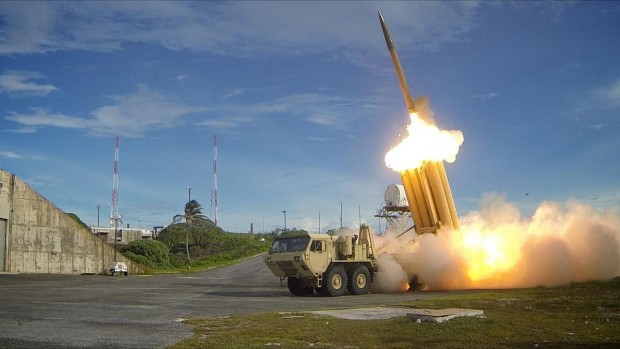Diplomatic roller coaster
Andrei Lankov – The Korea Times
China is routinely described in the world’s media as “North Korea’s sole ally,” but this statement is rather misleading: the relations between Beijing and Pyongyang have never been easy, and the friendly official rhetoric all too often has served as a thin veneer, masking a great level of mistrust and suspicion. In the last year, since September 2015 or so, Sino-North Korean relations have been uncertain to say the least. Periods of warmth have been followed in quick succession by sudden cooling, and periods of near open hostility have given way to renewed cordiality
By the summer of 2015, relations between China and North Korea had been bad for a few years. It was an open secret that President Xi Jinping does not like the young North Korean strongman, and such feelings obviously have been reciprocated by Kim Jong Un. The Chinese downgraded official exchanges, and halted all major infrastructure projects which had begun during the thaw of 2008-2011. The North Korean media made thinly veiled attacks on China ― and the Chinese official media could also be quite critical about the North.
However, given the growing Sino-American rivalry, and also the need to maintain the status quo on the Korean Peninsula, around August last year China decided to take a softer stance. In early October North Korea was visited by Li Yunshan, a member of the Politburo Standing Committee and one of the top five Chinese decision-makers. Li was greeted with much pomp, and for the next few months relations visually improved.
Relations were not damaged even by a rather comical incident which occurred on December 12. China was visited by the Moranbong girls’ group, essentially Kim’s personal entertainers. The visit was meant to be a gesture of friendship, and as such was widely publicized, but at the last moment, only a few hours before the scheduled first performance, the North Korean girls rushed to the airport and left the country. The concert, which the Chinese elite were to attend, had to be cancelled when it was too late to notify all visitors. The details are not fully known, but it seems that the Chinese diplomats were not happy with the boasting the group did in their songs about nuclear weapons which were meant to be a part of the Moranbong performance. When the Chinese officials required minor changes, the Young Marshal’s girls refused and left.
However, a real blow was delivered early this year when, on January 6, the North Koreans conducted another nuclear test. Initially, the Chinese government did not want to overreact, and was inclined to support only a mild increase in the level of international sanctions. However, the nuclear test was followed by a long-range missile test, strategically conducted in early February, exactly when a high-level Chinese envoy arrived at Pyongyang. It was seen as a major affront, so a Beijing-Pyongyang détente, then merely five months old, ended suddenly and prematurely. In early March the Chinese representative at the UN Security Council voted for Resolution 2270 which introduced unprecedentedly harsh measures against North Korea.
The jury is still out on whether China fully implemented or will fully implement Resolution 2270, but it seems that trade with North Korea indeed went down considerably. Given that China is by far the most important trading partner of North Korea, this turned out to be no small matter.
However, another U-turn, the third in less than a year, happened in mid-July when South Korea and the U.S. announced plans to deploy the Terminal High Altitude Area Defense (THAAD) anti-missile defense system in South Korea. While the Americans insist that THAAD is technically incapable of intercepting the Chinese missiles, this does not help. The Chinese still worry about the additional intelligence-gathering capabilities the Americans would acquire if the system is deployed, and they also did not want to create a dangerous precedent of the U.S. anti-missile systems being deployed so near to China’s borders.
On top of that, the THAAD decision was seen in China as a betrayal of trust. In March they agreed to support tough sanctions on the assumption that the U.S. would not increase its military presence in the region that China sees as vital. The THAAD deployment is seen as a sign of U.S. (and South Korea’s) duplicity and anti-Chinese attitude.
Predictably, China moved to improve relations with North Korea and got softer on the sanctions issue (admittedly, ambiguous wording of Resolution 2270 offers a great deal of flexibility). The period of frosty relations was seemingly over, having lasted for some five months.
For a while it looked like China was going back to its old position of grudging and conditional support of North Korea. However, things changed again: on September 9, a new nuclear test took place.
Will it mean that the Chinese policy will undergo a new U-turn, the fourth in a year? Well, soon we will see.











































